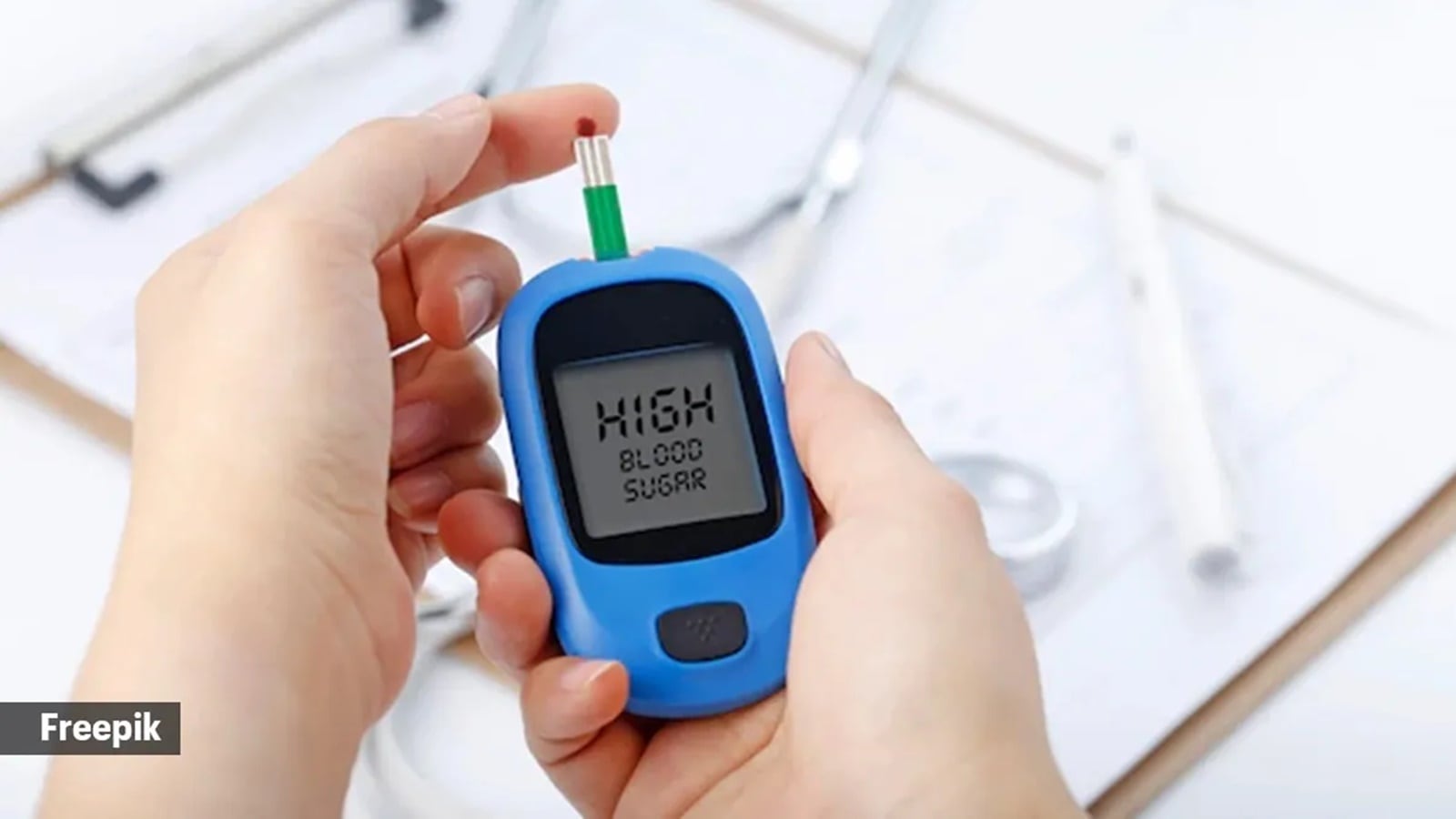Is there a link between the Hemoglobin A1C blood test, which measures blood sugar levels, and the identification of cancer risk? Podcaster Bisma Lalji, who is battling stage 4 breast cancer, recently claimed that high blood sugar doesn’t just impact diabetes risk, “It also fuels inflammation, disrupts hormone balance, and creates an internal environment where cancer can grow and thrive.”
In an Instagram post, she added that the A1C test, which measures your average blood sugar levels over the past ~3 months, is “one of the most important, especially when it comes to cancer.” “Cancer cells literally feed off glucose,” Lalji, who hosts The Other C Word podcast, continued.
Sharing that glucose management is now a core part of her healing plan, she wrote: “I was diagnosed with stage 4 breast cancer at 35, and since then, I’ve adopted the metabolic approach to cancer-focused on stabilising blood sugar, reducing insulin spikes, and supporting my mitochondria”.
Story continues below this ad
She also mentioned that she follows a Ketogenic diet, practices intermittent fasting, and regularly tracks her glucose, “Not for weight loss—but to starve cancer, reduce inflammation, and protect my body. Whether you have cancer or not, your A1C matters. You should be getting it checked at least every 3 months if you’re working on improving your metabolic health—or, at minimum, once a year as part of your annual labs. Don’t assume your doctor is already checking it. You have to ask,” stressed Lalji.
Is there any truth to this claim?
Before answering the question, let’s understand the tests generally carried out to gauge cancer risk.
Dr Neeraj Goel, director, oncology services, GI Oncology, GI & HPB Surgery at the CK Birla Hospital®, Delhi, said that it’s essential to consider a combination of factors rather than relying on a single test. “Cancer risk is influenced by personal medical history, such as previous cancer diagnoses or pre-existing conditions like ulcerative colitis, which may elevate the likelihood of certain cancers. Family medical history also plays a significant role—having a close relative with cancer can increase your risk, especially if inherited genetic mutations like BRCA1 or BRCA2 are involved, which are known to significantly raise the chances of breast, ovarian, and some other cancers,” said Dr Goel.
 Are high blood sugar levels a risk factor? (Photo: Freepik)
Are high blood sugar levels a risk factor? (Photo: Freepik)
Lifestyle factors such as smoking, poor diet (particularly one high in processed meats and saturated fats and low in fruits and vegetables), physical inactivity, and obesity are well-established contributors to increased cancer risk. “In addition, environmental exposures—including ultraviolet (UV) radiation, ionising radiation, and certain chemical exposures—can also elevate the risk,” said Dr Goel.
Story continues below this ad
Dr Jyoti Anand, senior consultant in medical oncology at Fortis Hospital, Noida, added that several types of tests can help gauge an individual’s risk of developing cancer. These include genetic tests, blood tests, and imaging scans.
Genetic testing is a valuable tool for individuals with a strong family history of cancer. According to Dr Goel, it can identify inherited mutations that may predispose someone to specific types of cancer. “Alongside this, genetic counselling is important to help individuals understand their results and make informed decisions about preventive measures,” said Dr Goel.
Risk assessment tools exist, such as the Gail model for estimating breast cancer risk and other models that consider age, family history, and personal health factors to estimate the likelihood of developing different cancers.
Regular screening and early detection are among the most effective approaches to managing cancer risk. “Screening tests such as mammograms, colonoscopies, Pap smears, and low-dose CT scans for high-risk individuals can help detect cancer at an early, more treatable stage, significantly improving outcomes and survival rates,” said Dr Goel.
Story continues below this ad
Dr Jyoti said the type of test recommended depends on an individual’s personal risk factors, family medical history, and the presence of any symptoms or clinical findings. “A doctor will guide you on the appropriate tests based on a comprehensive risk assessment. “
So, is HbA1c a reliable test?
Dr Goel clarified that HbA1c, a blood test commonly used to assess long-term blood sugar control in individuals with diabetes, is not a test to detect or indicate cancer. “While some studies have suggested a potential link between high HbA1c levels and increased cancer risk, no direct or definitive association has been established. Therefore, it should not be used as a cancer risk assessment tool. More research is needed in this area to draw firm conclusions,” said Dr Goel.
However, if there are warning signs, consulting doctors may order blood tests like tumor markers or a Complete Blood Count (CBC).
Dr Prashant Chandra, oncosurgeon, TGH Oncolife Cancer Centre, Pune, said that these tests need to be interpreted by an expert oncologist as tumour markers may remain normal in cancer patients and may be elevated in normal individuals.
“So don’t panic with any reports, stay vigilant regarding your health, and know your personal and family history. Doing so can guide you on which tests are right for you. Remember to take any test advised by the doctor without any delay. Stick to the guidelines given by the doctor when it comes to treatment,” said Dr Chandra.
Story continues below this ad
DISCLAIMER: This article is based on information from the public domain and/or the experts we spoke to. Always consult your health practitioner before starting any routine.
























